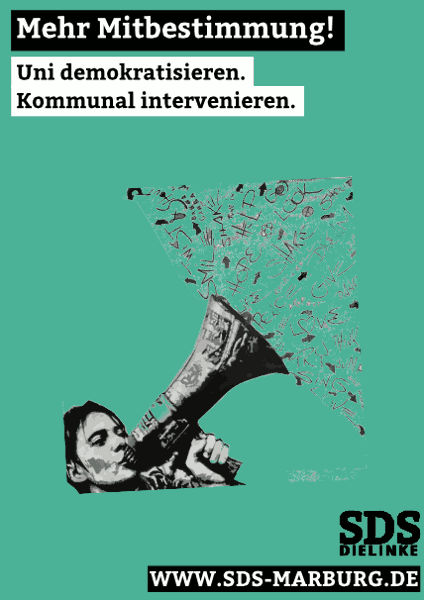Every year the students of Marburg university are allowed to elect the student's parliament. We are a eligible group that associates with ideas of feminism, marxism and antifascism. For more about us, click here.
The General Students' Committee or Allgemeiner Studierendenausschuss (AStA) has gathered reason as to why it is important to take part in university elections. Sadly, they are only available in german. Therefore, we want to sum them up shortly. The students ticket, the free of charge legal advice or the introductory week in the beginning of the semester are some of the benefits made possible by the students parliament. We think these benefits are great but could even be greater.
If you have any feedback visit us on our weekly meetings or contact us via mail.

The SDS of Marburg is a socialist and plural student association, which is independent and democratically based. We campaign especially within collaborations of interested people and other democratic groups as well as in a solidary and critical relation to the party DIE LINKE for the concerns and interests of the students, like social justice and a better educational system.
In doing so we attempt to develop an emancipatory policy founded on feminist, Marxist, anti-capitalist and anti-oppression positions. The commitment for a stronger emancipation of minorities and disadvantaged groups of persons as well as the fight against fascism is thereby especially important to us.
The perception of collegiate interests on so many different levels, for example the Student Parliament (Stupa), different departments of the General Student Committee (AstA), the Council of Elders or on urban policy level, as well as their sustainable and public-oriented articulation and enforcement form the core component of our work.

